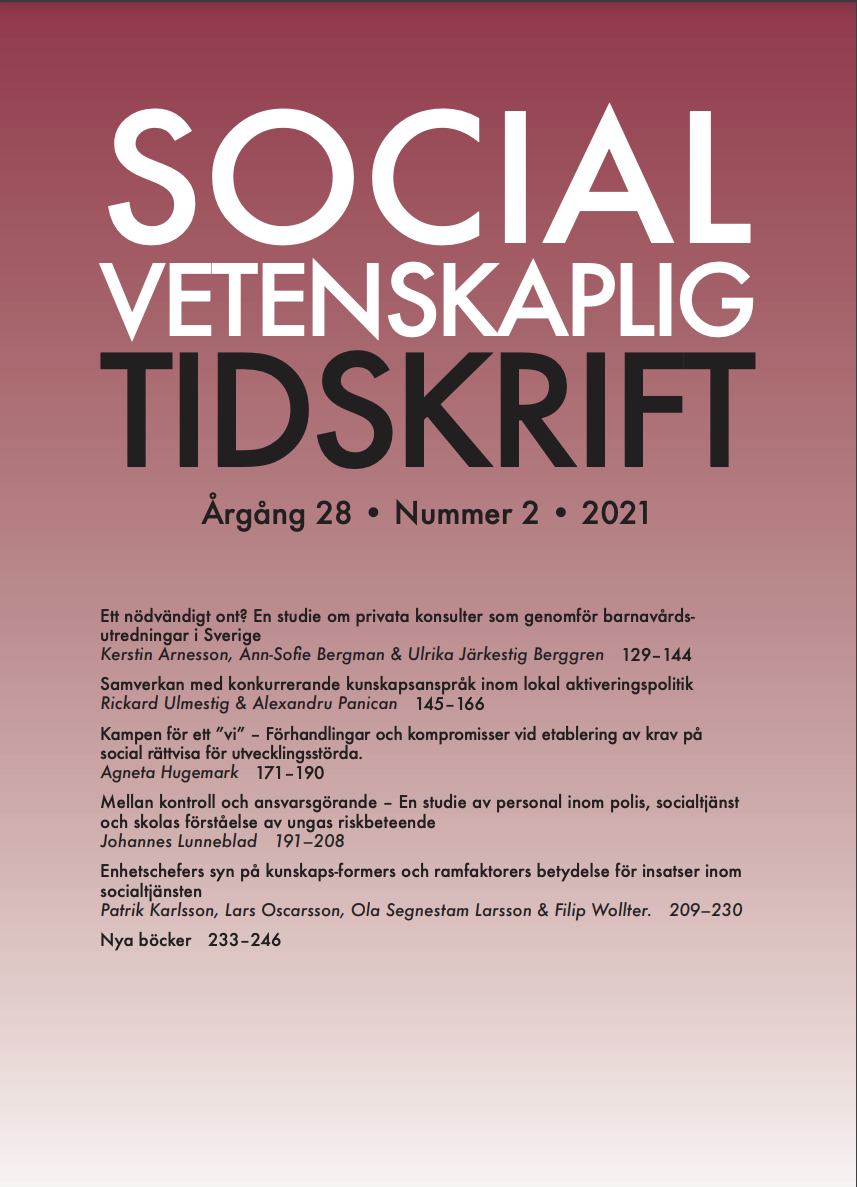The struggle for a “we”.
Negotiations and compromises in the establishment of social justice claims for mentally retarded
DOI:
https://doi.org/10.3384/SVT.2021.28.2.4254Abstract
The disability movement is one of several examples of how people have organized to bring about justice for a socially disadvantaged group. As its organizations have managed to articulate and establish their demands in the public and political arena, the struggle has also brought about real changes. One of these organizations is the Association of Mentally Retarded Children, Adolescents and Adults (FUB). The organization was founded in the middle of the twentieth century and is one of the oldest in the Swedish disability movement. The FUB is taken here as an example of how movement organizations’ sometimes problematic struggle for resources and legitimacy can be understood in the light of conditions that are common to organizations struggling for political change for subordinate groups. In such organizations, there are recurring disagreements on key issues, such as which common experience is most central, how members should be recruited and what policy aims should be pursued. One way to interpret such discussions is to individualize the problems and to attribute them to incompetence, difficulty of cooperation, disloyalty, and so on. In this article, the discussions are understood as manifestations of a more fundamental problem, i.e. that political success is conditioned by the size of the organization as well as by how unanimously its collective identity and political demands are articulated. The dilemma is that the risk of disagreement tends to increase the more people the organization manages to recruit. The dilemma between size and unity cannot be resolved, yet it must be handled.
Downloads
Published
Versions
- 2022-07-11 (2)
- 2022-03-08 (1)
How to Cite
Issue
Section
License
Allt material i Socialvetenskaplig tidskrift publiceras sedan 2022 (Vol 28 Nr 2) med omedelbar öppen tillgång (open access), under Creative Commons-licensen CC BY 4.0. Upphovsrätten till innehållet tillhör respektive författare.
Allt innehåll i tidskriften är fritt tillgängligt utan kostnad och får fritt läsas, laddas ned, kopieras, delas, skrivas ut och länkas. När innehållet används måste författare, källa och licens anges. Författaren kan fritt göra sin publicerade text tillgänglig på institutionella och internetbaserade arkiv, exempelvis sitt lärosätes digitala arkiv eller andra tjänster för detta.
Inga publiceringsavgifter tas ut vid publicering i Socialvetenskaplig tidskrift.


